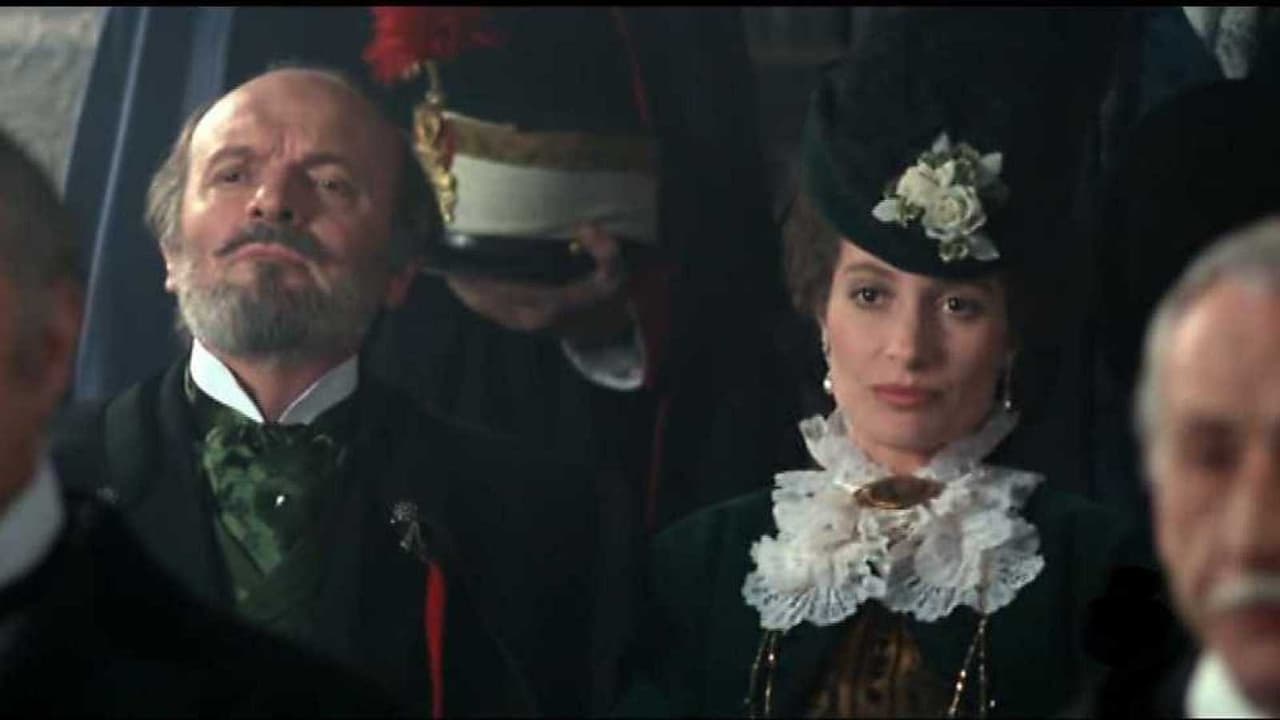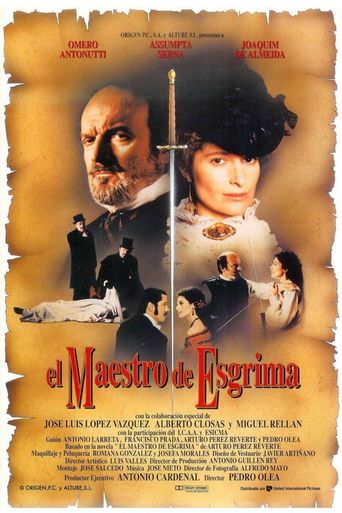

Wow! Such a good movie.
... View MoreSadly Over-hyped
... View MoreLack of good storyline.
... View MoreA different way of telling a story
... View MoreThe atmosphere and quality of images and production values reminded me of the masterpiece by Raoul Ruiz, Mysteries of Lisbon. It's rare to see good literature transposed into a good movie, but this is one of them. You sense the author's collaboration in the screenplay in the terse, minimal dialog. The romantic mystery is well served by the classical beauty of the scenery, costumes, all the details of rooms, palaces, offices, street life. The attention to detail also reminds of certain "operatic" film works by Visconti. One mystery that remains unrevealed in the VHS version I have is the opera scene which is first shown as a live performance of La Traviata and then is heard again in the long final scene. It plays an important psychological role in the film, and is sung by an exceptional soprano voice. Can anyone tell me who the singer is, and what other information is given, but is unreadable on the VHS video version?
... View MoreIt is set in 1868 Pre-revolution Spain , Madrid , about fall Queen Isabel II and return general Prim . There occurs a lot of anti-Borbon strikes and protests against Isabel II . On his return to Spain general Prim joined the opposition, heading revolts in Catalonia against generals Narvaez and O'Donnell. All his attempts failed until the death of Narvaez in April 1868, after which Queen Isabella fell more and more under the influence of the Jesuits, and became increasingly tyrannical, until at last even Serrano was exiled. In September 1868 General Serrano and General Prim returned, and Brigadier Topete, commanding the fleet, raised the standard of revolt at Cádiz . This is the historical scenario in which takes place a especial love story between a fence master named Jaime Astarloa (Omero Antonutti) who is hired to teach a coup-de-grace to a beautiful young woman named Adela De Otero (Assumpta Serna) . Although Jaime has never taught a woman before he agrees to teach the stab . When a local nobleman named Luis Ayala (Joaquim Almeida) becomes involved with her the action begins . Furthermore , the suspenseful intrigue involves a revolutionary journalist (Miguel Rellan) , a police inspector (Jose Luis Lopez Vazquez) and a banker (Albeerto Closas) .This is a historical thriller that blends loving elements , politics , sober melodrama ; but being carried out in coldness , academicism and slowness . This is a thriller/cold drama that keeps you interested and expecting , including a tragic love story . Hightlights of the movie are the excellent sets and magnificent dueling between Italian Omero Antonutti and Spanish Assumpta Serna . Good acting by Assumpta Serna who wishes to learn a particular thrust which a master is famous for and Omero Antonutti as a fencing master who is fascinated by her . Furthermore , it packs a good support cast full of notorious Spanish actors such as Alberto Closas , Miguel Rellan , Elisa Matilla and special mention to Jose Luis Lopez Vazquez . Colorful and glimmer cinematography by excellent and veteran cameraman Alfredo Mayo , glamorously filmed in Madrid . Emotive as well as thrilling musical score by Jose Nieto . The flick is based on a novel titled ¨El Maestro De Esgrima¨ by Arturo Perez Reverte who also wrote the screenplay along with the director Pedro Olea and Antonio Larreta . Reverte is a Spanish journalist and TV reporter, who turned to writer and today the best-selling author in Spain and the best-selling Spanish author in the world . Famous author of "Alatriste" novels as he carried out quite a lot of the work of investigating historical documents relating to 17th Century Madrid. His novels have the common thread of being based on real historical times and that in each case a great deal of investigation goes into the making of his stories, as well as the fact that he has had to learn a great deal on topics ranging from chess-playing to historical first-editions from 16th Century Dutch masters to Informatics and even swordsmanship . His extraordinary imaginative abilities have been able to produce well-written adventure stories , being adapted for cinema the following novels : Territorio Comanche , The ninth gate , La Tabla De Flandes , Gitano and Carta Esferica .The motion picture well produced by Antonio Cardenal was professionally directed by Basque (Bilbao) filmmaker Pedro Olea. He is one of the most gripping Spanish directors , being an expert director , producer and screenwriter . He began directing ¨Dias Viejo color¨ and followed a personal work titled ¨Bosque del Lobo¨ about an alleged werewolf . He subsequently directed a trilogy about Madrid , produced by Jose Frade, such as ¨Tormento , ¨Pim , Pam , Pum Fuego¨and ¨La Corea¨ . His biggest success was ¨A man called Flor De Otoño¨ with Jose Sacristan . After that , he made ¨Bandera Negra¨ about arms smuggling and a military thriller : Moriras en Chafarinas¨ ; later on , he directed ¨Mas Alla Jardin¨ with Concha Velasco . And ¨Fencing master¨ that resulted to be one of the best films . Rating : Above average , well worth watching .
... View MoreNothing is more depressing than having a good story , and a couple of good actors and then fail miserably at attempting to make a good movie... It is indeed a pity to see that El Maestro de Esgrima (based on a story written by Spain's top-selling Pérez Reverte and with such actors as Omero Antonutti or Assumpta Serna) fails lamentably to raise any kind of interest. In spite of all the efforts of the talented Ms Serna, the reputed Antonutti and the versatile Almeida, the film is not even remotely interesting. The filming is classic in the worst sense of the word: it is totally unimaginative and absolutely boring. So is unfortunately the acting (with the exception of 3 mentioned before), so stuck up and cliché, you'd think you were sitting at an amateur play. Even the sets and costumes look fake. All that comes to your mind after a while is "Oh please"... Check what else is on on TV. At least it won't be that boring.
... View MorePérez-Reverte's second novel and the first that I read; I was immediately attracted to the author's ability to set his scene in a historical moment in time, which he has done in other books, most notably the `Capitán Alatriste' series, as well as his easy-flowing narrative style which carries the reader on into the plot. And as his story develops, so do the characters: there is depth and feeling, such that it seems that real personalities spring up out of his pages.It was with some scepticism that I sat down to watch `El Maestro de Esgrima' as previous viewings of film versions of Pérez-Reverte's novels left me with a very bad taste: `Territorio Comanche'(qv) and `La Tabla de Flandes'(mysteriously called `Uncovered' (qv) by those responsible for making the horrendous disaster) were very poor efforts for the cinema. However, from the very first moments, it was obvious that a lot more care had been taken in making `El Maestro de Esgrima'.Pedro Olea (`Más Allá del Jardín' (qv) based on a book by Antonio Gala) had something decent in mind when he embarked on this film. He was fortunate in choosing Omero Antonutti as the fencing master. From the book one would have expected someone somewhat thinner and perhaps even a little older: however, Antonutti, who I can remember in one of the best two or three Spanish films of all time `El Sur' (1982)(qv) made an excellent contribution, together with Assumpta Serna as Adela de Otero. At times I suspect that the chemistry could have been a little better, but on the whole these two principal actors keep everything on course. Serna was certainly quite a good choice, but again, from having read the book, I might have thought of someone just a few years younger. She is always good to watch, and hardly anywhere better than precisely in `El Maestro de Esgrima'. Another interesting point is that no doubles were used in the tepeé dual at the end of the film; it only lasts a few minutes, but it is very well done. Antonutti and Serna both had to take fencing classes, and the result is well worth the effort.José Nieto one of the best film-music composers in Spain for many years tones in well with the proceedings and the Madrid of the 1830s.
... View More